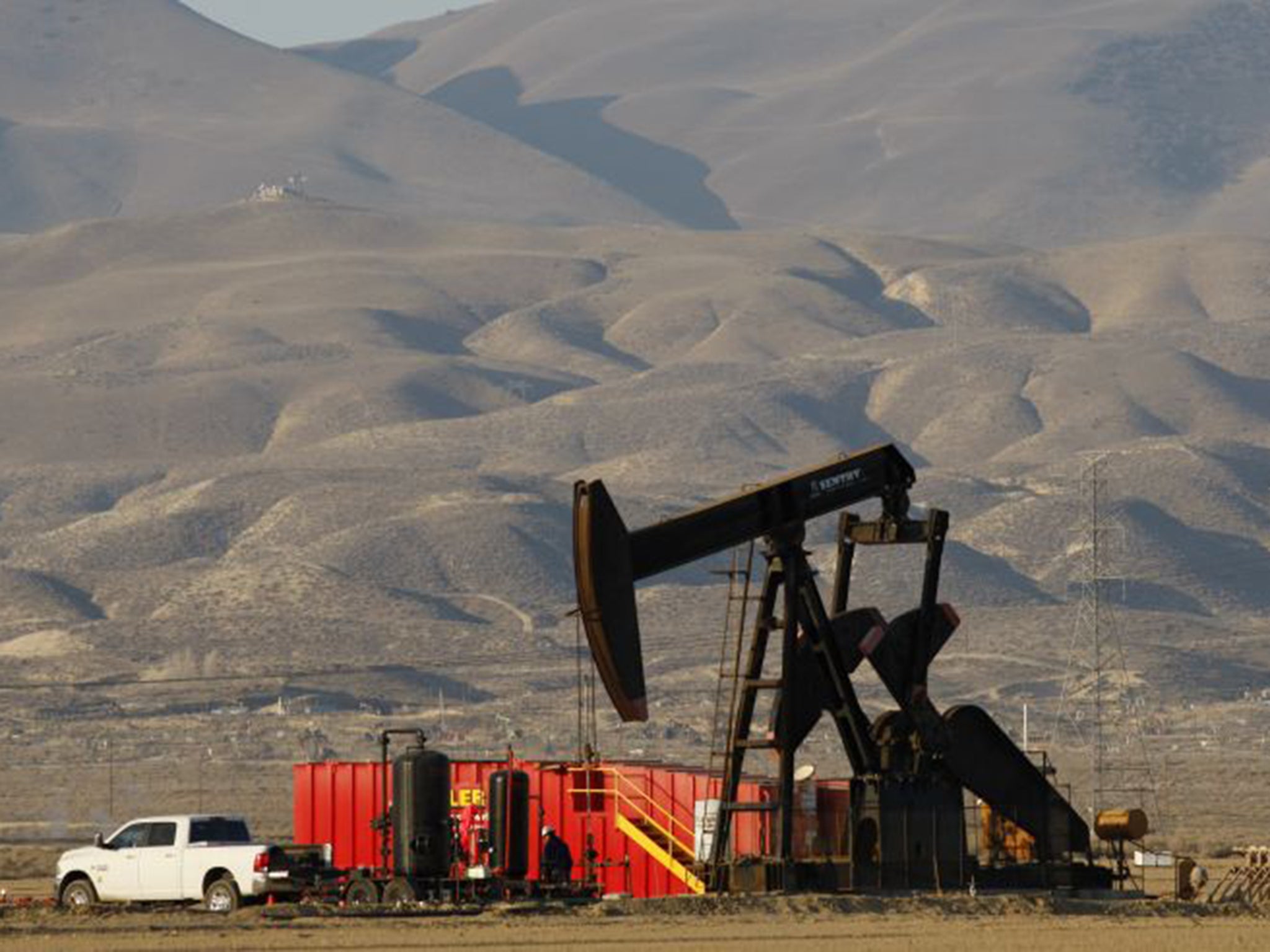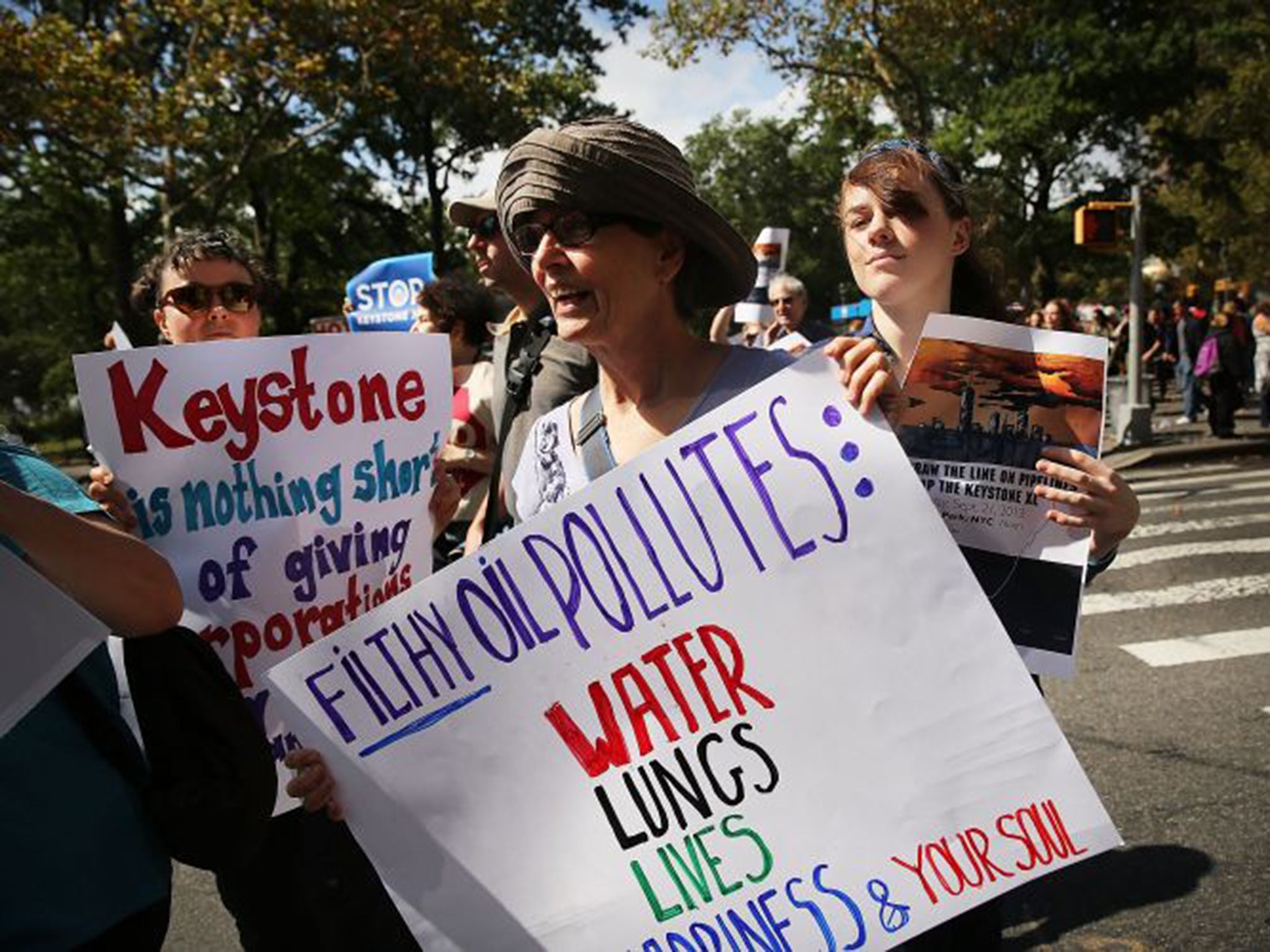Fracking could be behind startling increase in US methane surge, experts say
Rapid rise in the global-warming gas, 86 times more powerful than CO2, is spotted by satellites

Your support helps us to tell the story
From reproductive rights to climate change to Big Tech, The Independent is on the ground when the story is developing. Whether it's investigating the financials of Elon Musk's pro-Trump PAC or producing our latest documentary, 'The A Word', which shines a light on the American women fighting for reproductive rights, we know how important it is to parse out the facts from the messaging.
At such a critical moment in US history, we need reporters on the ground. Your donation allows us to keep sending journalists to speak to both sides of the story.
The Independent is trusted by Americans across the entire political spectrum. And unlike many other quality news outlets, we choose not to lock Americans out of our reporting and analysis with paywalls. We believe quality journalism should be available to everyone, paid for by those who can afford it.
Your support makes all the difference.Startling increases in one of the main pollutants that cause global warming have been unexpectedly discovered over the United States – and the main suspect is the country’s booming fracking industry.
New Harvard University research, drawing on satellite measurements, concludes that US emissions of methane – a much more powerful warming gas than carbon dioxide – have “increased by more than 30 per cent over the past decade”.
The researchers say they “cannot readily attribute” the rise to any particular source but point out that US production of shale gas increased nine times during the same period, while other studies show that many fracking operations are emitting much more methane than has been officially recognised.
If the extraction process proves to be the culprit, it will show that exploiting and burning shale gas has been much more potent in global warming even than using coal, severely undermining energy and climate-change strategies. Both the British and US governments have been banking on shale gas as a relatively clean fuel that would act as a “bridge” to the low carbon economy needed in the next few decades if the world is not to heat up uncontrollably.

Their policy is based on the fact that burning gas emits half as much CO2 as coal. But if large amounts of methane – 86 times more powerful in causing global warming – is emitted via fracking then this advantage will be negated, or overturned.
The findings are an unpleasant surprise, as the US Environmental Protection Agency (EPA) has held there has been no significant rise in emissions of the gas since 2002. But it relies on estimates based on data from emitting industries, while the new study is based on independent satellite measurements.
Oil and gas exploitation, coal mining, livestock and landfills all emit methane, with wetlands the major natural source. The study, published in the journal Geophysical Research Letters, says the rise in emissions is “largest in the central part of the country”. It points out that “the US has seen a 20 per cent increase in oil and gas production, and a ninefold increase in shale gas production” over the relevant period, but adds that the “spatial pattern” of the methane does not “clearly point” to the industry, and calls for more research.
Other experts, however, have little doubt as to the identity of the main culprit. Professor Robert Howarth, of Cornell University, who conducted a groundbreaking study into the effects of methane emissions from exploiting shale five years ago, says: “The increase almost certainly must be coming from the fracking and from the increase in use of natural gas.”
And a review of 200 studies by Stanford University scientists concluded leaks in the gas system are “an important part of the problem” that “US emissions of methane are considerably higher than official estimates”. Even EPA head Gina McCarthy admitted late last month that “methane emissions from existing sources in the oil and gas sector are [much] higher than we previously understood”.
The EPA’s industry-based estimates suggest less than 2 per cent of the gas produced by fracking leaks nationwide. If that was right, shale gas would be cleaner – just – than coal. But satellite measurements over two of the fastest-growing regions for exploiting it, East Texas and North Dakota, found leakage of 9 and 10 per cent. Yet another major study put leakage at about 5.4 per cent nationwide.
But many wells, still more research shows, have kept leakage to below 1 per cent, and the Obama administration has introduced measures to slash emissions from new wells. But firms are reluctant to curb them at existing ones due to low gas prices, and official monitoring and enforcement is often scanty at best.
Join our commenting forum
Join thought-provoking conversations, follow other Independent readers and see their replies
Comments